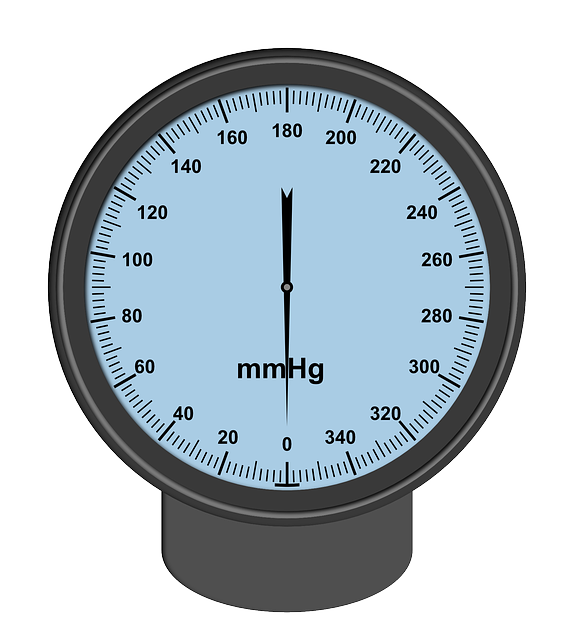Liver Function Tests (LFTs), especially the UK Advanced Liver Blood Test, are crucial diagnostic tools that provide detailed insights into liver health. This test goes beyond standard LFTs by measuring specialized components like enzymes (ALT, AST), bilirubin, albumin, and prothrombin time, enabling early detection of conditions such as hepatitis, cirrhosis, or fatty liver disease. Medical professionals interpret these results in clinical context to guide diagnostic and treatment decisions, offering personalized care plans that can range from observation to urgent interventions, ultimately promoting optimal liver health.
Liver function tests (LFTs) are essential tools for medical professionals, offering insights into liver health. This article delves into two key aspects: the UK Advanced Liver Blood Test, exploring its components and interpretation, and clinical applications based on LFT results. For healthcare providers, understanding these elements is crucial for accurate patient management. By analyzing various enzymes and proteins, the advanced test detects liver damage or abnormalities early, guiding treatment decisions and improving patient outcomes.
- Understanding Liver Function Tests: What Medical Professionals Need to Know
- UK Advanced Liver Blood Test: Components and Interpretation
- Clinical Applications and Patient Management Based on Liver Function Test Results
Understanding Liver Function Tests: What Medical Professionals Need to Know
Liver function tests (LFTs) are a crucial diagnostic tool for medical professionals, providing insights into the health and performance of the liver. These tests measure various enzymes, proteins, and other substances in the blood that are indicative of liver function and can help identify potential issues. In the UK, advanced liver blood tests offer a comprehensive assessment, going beyond basic LFTs to detect subtle abnormalities and provide a more detailed picture of liver health.
Medical professionals should understand that these tests evaluate different aspects of liver physiology, including its ability to process and detoxify substances, synthesize essential proteins, and maintain overall balance. By interpreting the results, healthcare providers can identify conditions such as hepatitis, cirrhosis, fatty liver disease, or even early signs of liver damage. The UK Advanced Liver Blood Test, with its expanded panel, allows for earlier detection and more effective management of liver-related disorders, ensuring optimal patient care.
UK Advanced Liver Blood Test: Components and Interpretation
The UK Advanced Liver Blood Test is a comprehensive assessment tool that provides insights into liver health, offering medical professionals a detailed picture beyond basic liver function markers. This test goes beyond traditional measures by including a range of specialized components, each providing valuable information about the liver’s metabolic processes and overall health status. Key indicators such as enzymes (ALT, AST), bilirubin, albumin, and prothrombin time (PT) are measured, allowing for a multifaceted evaluation.
Interpretation requires careful consideration of these parameters in conjunction with clinical context. For instance, elevated ALT and AST levels may suggest hepatic inflammation or damage, while abnormal bilirubin readings can indicate issues with bile production or flow. Low albumin concentrations might point to decreased protein synthesis or acute illness, while prolonged PT times could be a sign of impaired liver synthetic function or coagulopathy. Medical professionals use these results to identify potential liver disorders and guide subsequent diagnostic and treatment decisions.
Clinical Applications and Patient Management Based on Liver Function Test Results
Liver function tests (LFTs) are a critical tool for medical professionals to assess liver health and identify potential issues. The UK Advanced Liver Blood Test, for instance, provides a comprehensive overview of liver enzymes, bilirubin, albumin, and other markers, enabling precise diagnosis and early detection of liver diseases. Clinical applications include monitoring patients with chronic liver conditions, evaluating liver damage from medications or toxins, and guiding treatment strategies such as dietary adjustments, medication changes, or referrals to specialists.
Based on LFT results, patient management can range from observation for mild abnormalities to urgent interventions for severe cases. For example, elevated enzymes like AST and ALT may indicate hepatitis or other inflammatory conditions, prompting further investigations. Low albumin levels could suggest impaired synthetic function, necessitating nutritional support. By interpreting these findings, healthcare providers can tailor care plans, offering personalized guidance and ensuring optimal liver health for their patients.
Liver function tests are invaluable tools for medical professionals, offering insights into liver health through the UK Advanced Liver Blood Test. By understanding the components and interpreting results accurately, clinicians can effectively manage patients with liver-related issues. These tests play a pivotal role in diagnosing and monitoring conditions, enabling targeted treatment strategies and enhancing patient outcomes.
